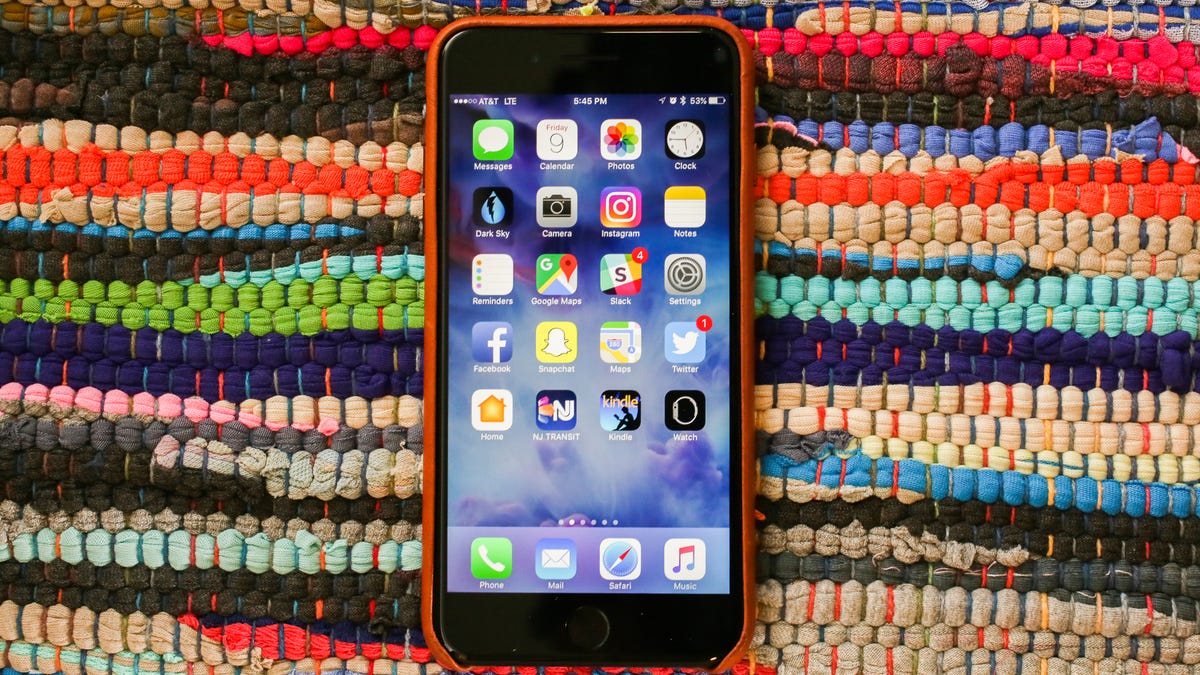Qualcomm: Apple supporters are trying to misdirect regulators
In a filing with the US International Trade Commission, the chip giant defends its proposed ban of some Apple iPhones.

Qualcomm wants the US International Trade Commission to ban the import of certain iPhones that don't use Qualcomm's chips.
Qualcomm is defending itself against critics who say its patent dispute with Apple is really about quashing competition.
Earlier this month Qualcomm filed a complaint with the US International Trade Commission, accusing Apple's iPhones of infringing six of its mobile patents. As part of the filing, Qualcomm wants the ITC to ban the import of certain iPhones that don't use Qualcomm chips, as well as ban Apple from selling devices it has already brought into the US. That would include iPhone 7 and 7 Plus models running on AT&T and T-Mobile, as well as certain iPads. Those devices use Intel 's 4G chips, while phones from other carriers like Verizon use Qualcomm's processors.
Last week, Intel and others critics accused Qualcomm of trying to use the courts to snuff out competition. In a public statement to the ITC, Intel described itself as "Qualcomm's only remaining competitor" in the mobile chip market. The Computer & Communications Industry Association -- a trade group that represents Google, Amazon, Facebook and other tech companies -- also urged the ITC to reject Qualcomm's proposed ban, saying it would harm consumers by enabling anti-competitive behavior.
In response to those comments, Qualcomm said its critics are waging a "coordinated effort aimed at misdirecting" the ITC.
In a filing with the trade regulator Monday, the company argued that its proposed important ban isn't about competition with Intel. Qualcomm called the mobile chip market "robust" and said "Apple can purchase and utilize any LTE modem it chooses so long as it does not infringe Qualcomm's asserted patents."
Instead, Qualcomm said, the import ban is about Apple devices that infringe "technologies relating to the design, structure, and operation of products with envelope tracking technology, voltage shifter circuitry, flashless boot, power management circuitry, enhanced carrier aggregation, and graphics processing units."
Apple and Qualcomm have been fighting over patents since January, when Apple filed suit against Qualcomm in the US and said the wireless chipmaker didn't give fair licensing terms for its technology. It wants to pay a lower amount for using Qualcomm technology in its devices.
Qualcomm, the world's biggest provider of mobile chips, maintains that no modern handset -- including the iPhone -- would have been possible "without relying upon Qualcomm's fundamental cellular technologies." The company derives a significant portion of its revenue from licensing that technology to hundreds of handset manufacturers and others.
Qualcomm declined to comment beyond the filing. Apple didn't immediately respond to a request for comment.
It's Complicated: This is dating in the age of apps. Having fun yet? These stories get to the heart of the matter.
Does the Mac still matter? Apple execs tell why the MacBook Pro was over four years in the making, and why we should care.

